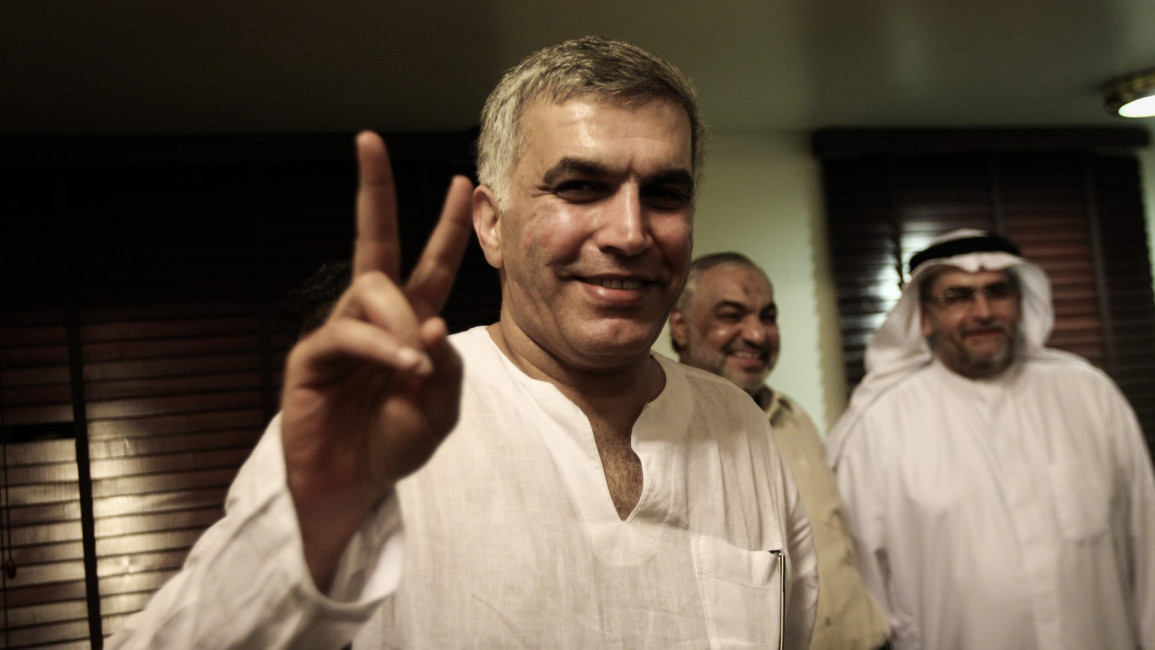Bahrain slammed for keeping activists behind bars as hundreds released in coronavirus measure
Despite the mass release, prominent political leaders and rights activists with underlying health conditions still languish behind bars.
On Thursday, the kingdom's official news agency announced that 901 prisoners would be granted a royal pardon "for humanitarian reasons, in the backdrop of current circumstances," while the interior ministry confirmed a further 585 inmates will have their sentences altered.
The interior ministry confirmed on Tuesday that the release of the prisoners - who represent a significant proportion of the country's overall prison population - had been completed.
However, rights groups have pointed out that the overwhelming majority of those given early release were foreign nationals or individuals on criminal charges, largely nearing the end of their sentences.
The Bahrain Centre for Human Rights (BCHR) noted that the release included at least 300 political prisoners, but criticised the authorities for keeping prominent political leaders and rights activists behind bars.
These include Hassan Mushaima, Abduljalil Al Singace and Nabeel Rajab, who all have pre-existing medical conditions which put them at greater risk if they contract COVID-19.
The release also ruled out those deemed by the UN to be arbitrarily detained, including 21-year-old Sayed Nizar Alwadaei, who was convicted in 2017 in an act of "reprisal" for the activism of his cousin, Sayed Ahmed Alwadaei, who is the advocacy director for the UK-based Bahrain Institute for Rights and Democracy (BIRD).
Twitter Post
|
Zakeya Al Barboori, Bahrain's last female political prisoner, will also remain as one of just 13 female prisoners behind bars in the country. The 31-year-old was forcibly disappeared after participating in a protest.
Sayed Ahmed Alwadaei, BIRD's Director of Advocacy, condemned the exclusion of rights defenders: "By excluding prominent human rights activists, as well as vulnerable inmates and those declared arbitrarily detained, the government has missed a valuable opportunity to demonstrate compassion during an unprecedented international pandemic."
"There has been no transparency on the part of the government regarding the identities of those released and it now transpires that the vast majority are either criminals or foreign nationals who will be immediately deported," he added.
The dire conditions of Bahrain's prisons have been well documented, and the release therefore aims to limit a potentially rapid spread of the coronavirus. A Bahraini government watchdog reported in 2016 that prisons were overcrowded, infested with insects, had broken toilets and general "bad" hygiene.
Furthermore, a scabies outbreak affecting over half of detainees at the kingdom's Dry Dock prison in January led hundreds of prisoners to launch a hunger strike in protest of poor medical care and unhygienic conditions.
Enas Oun, Head of Documentation at BCHR, said in a statement: "While we welcome the positive decision to release a number of detainees on humanitarian grounds, our documentation suggests that the overwhelming majority of those released are a mixture of foreign nationals and Bahrainis held for criminal offences. Only a limited number of political prisoners have been released and we were disappointed not to see the inclusion of more juveniles and inmates with health conditions."
"We are also saddened that BCHR's president, Nabeel Rajab, was excluded, as were BCHR founding member Abdulhadi Al Khawaja and activist Naji Fateel, all of whom are held for merely expressing their human right to free expression and assembly," she added.
Bahrain has confirmed 269 cases of the coronavirus, with one death so far.
Follow us on Twitter and Instagram to stay connected.



